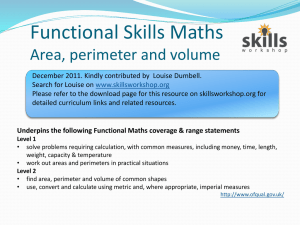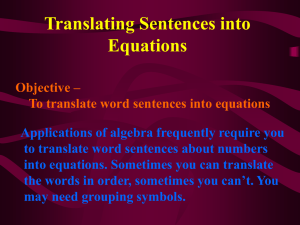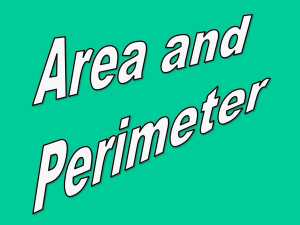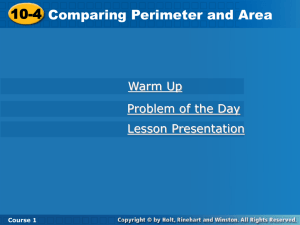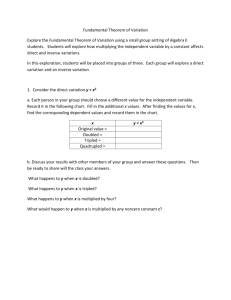Geometry 9-5 Changing Dimensions (Non
advertisement
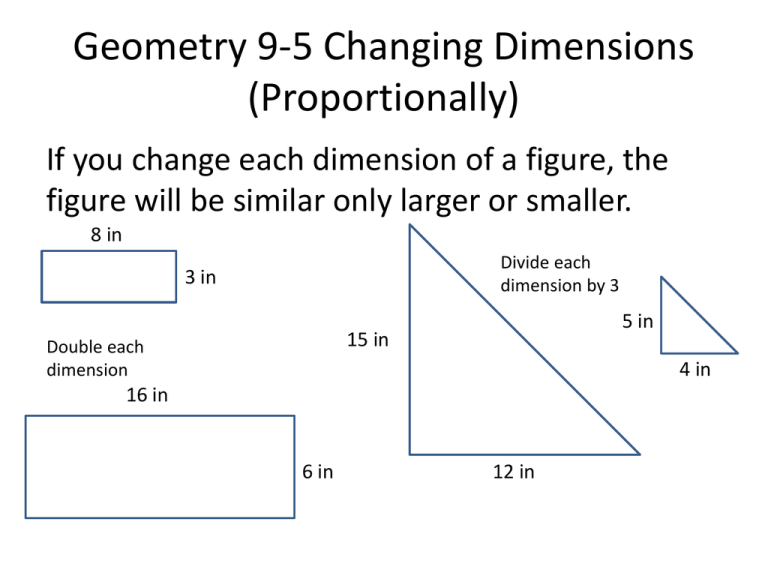
Geometry 9-5 Changing Dimensions (Proportionally) If you change each dimension of a figure, the figure will be similar only larger or smaller. 8 in Divide each dimension by 3 3 in 5 in 15 in Double each dimension 4 in 16 in 6 in 12 in Area and Perimeter What is the effect on area and perimeter? Ex) triple each dimension of rectangle 15 in 5 in 2 in 6 in 𝐴 = 2 ∙ 5 = 10 𝑃 = 2 + 2 + 5 + 5 = 14 𝑃𝑁𝑒𝑤 42 𝑃𝑒𝑟𝑖𝑚𝑒𝑡𝑒𝑟 = = =3 𝑃𝑂𝑙𝑑 14 𝐴 = 6 ∙ 15 = 90 𝑃 = 6 + 6 + 15 + 15 = 42 𝐴𝑁𝑒𝑤 90 𝐴𝑟𝑒𝑎 = = =9 𝐴𝑂𝑙𝑑 10 Shortcut? The effect on the area can be found by multiplying the changes in each dimension. The effect on the perimeter is the same as the change for each dimension (only if each dimension is changed by the same factor) Example If both diagonals of a rhombus are doubled, what is the effect on the area and perimeter? Area: 2 x 2 = multiplied by 4 Perimeter: multiplied by 2 If each dimension of a triangle is divided by 3, what is the effect on the area and perimeter? 1 3 1 3 Area: x = multiplied by Perimeter: multiplied by 1 3 1 9 Example The dimensions of a triangle are changed proportionally such that its area changes by a 1 factor of . How were the dimensions changed? 16 1 4 1 4 Area: x = 1 , 16 so the dimensions were multiplied by 1 4 Special Case: Circles The formula for circles only uses one variable, r. However, the radius represents both the “base” and the “height” of a circle. r r Ex) If the radius of a circle is doubled, then the… quadrupled area is _________ doubled perimeter is ________




